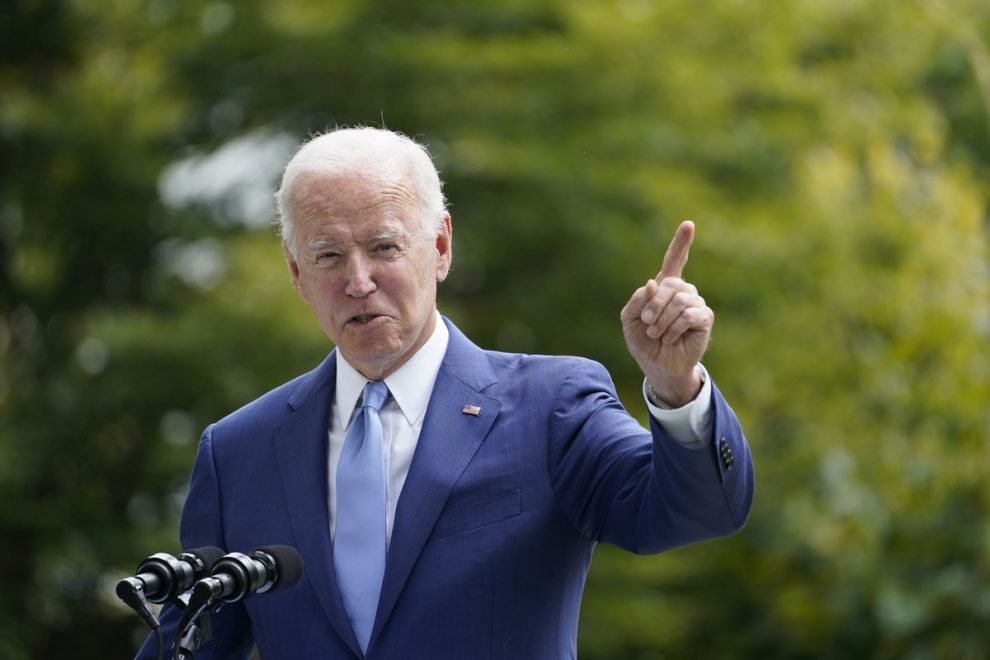President Joe Biden’s honeymoon period came to an end this summer, due, in part, to the rise of the delta variant and a chaotic U.S. exit from Afghanistan. But even as new reported COVID-19 cases and hospitalizations fall and attention on Afghanistan fades, his approval rating hasn’t bounced back.
Though Biden was popular during his early months in office, in July, his approval rating began to take a dip. In late August, his disapproval rating overtook his approval rating for the first time, and he hasn’t recovered.
Currently, Biden has a 49.2% disapproval rating and 44.5% approval, according to FiveThirtyEight’s polling average.
This pattern is a departure from how President Donald Trump’s approval ratings behaved. Trump was unpopular during his entire term and his rating didn’t see much fluctuation one way or the other from month to month.
In other words, people made their minds up about Trump early on and didn’t change. Though Biden remains more popular than Trump ever was as president, many Americans have changed their mind about him.
Between July and September, Biden’s approval fell among most demographic groups, according to a Pew Research Center survey released last month. Some of the most significant declines were among Americans who are Black (-18%), Hispanic (-16%), have a high school degree or less (-15%), Asian (-14%), or between 18 and 29 years old (-14%).
What’s really dented Biden’s approval is the hit he’s taken among members of his own party. Among Democrats, his rating fell from 92% to 83% between July and September, a nine percentage point drop.
The change was even worse among those who lean Democratic. Among members of this group, Biden’s approval rating fell from from 82% in July to 61%.
These shifts are happening as Biden’s agenda stalls in Congress because of clashes between moderates and progressives over the scope of his proposed 10-year “Build Back Better” plan. The legislation includes provisions for fighting climate change, expanding tax credits and strengthening the social safety net, paid for by increased tax rates for corporations, capital gains and those making more than $400,000 a year. The final total cost is expected to come in below Biden’s proposed $3.5 trillion price tag.
There’s no one single issue driving Biden’s slump, though. Confidence in his ability to handle the pandemic, foreign policy, economic policy or immigration and bring the country together has fallen among Democrats, independents and Republicans, per Pew.
As the party in power in a midterm election, Democrats already face long odds defending their slim majorities in Congress next year. Biden’s continued unpopularity could make it even more difficult.
In current and recent digital ads, the Republican National Committee has criticized Biden for his administration’s public health mandates and asked supporters whether they approve the job Biden’s doing.
Biden acknowledged the challenges he faces during a speech last week in Michigan to promote the “Build Back Better” act and a bipartisan infrastructure bill.
“I know there’s a lot of noise in Washington — there always is — but it seems to me, a little more than usual now — a whole lot of hyperbole, a lot of heat,” he said, adding he’s still confident both bills will pass.
“We’re going to pass both of these bills and start building this economy to beat the competition and deliver for working families,” Biden said.
Story cited here.
























